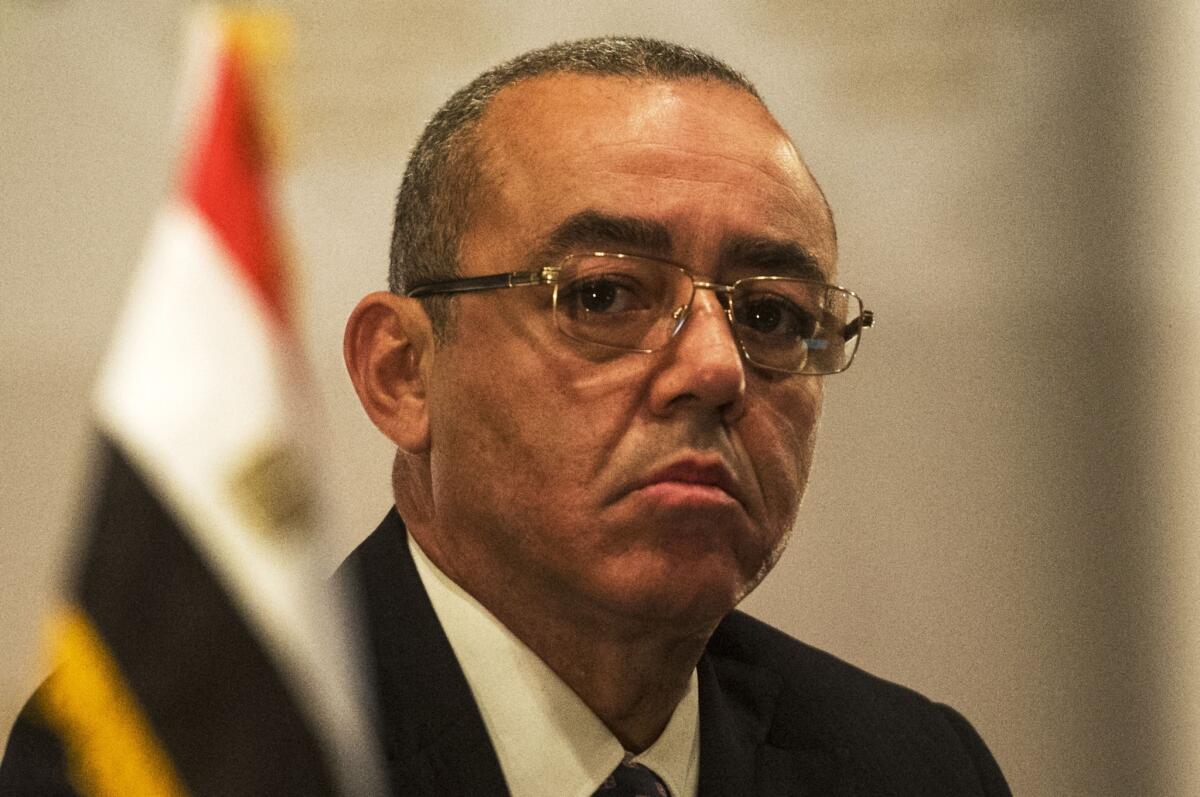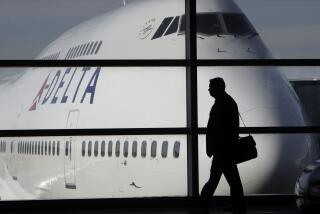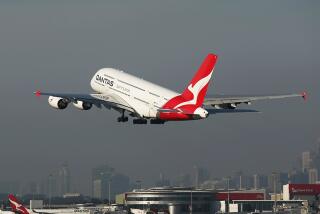Egypt moves to boost safety and tourism after October jetliner crash

In Cairo, Egyptian Minister of Civil Aviation Hossam Kamal attends a Dec. 22 news conference on airport security.
- Share via
Reporting from Cairo — Egyptian officials said Tuesday that the country’s push to send a global message of safety after an October plane crash killed 224 people includes extensive security reviews of two of its biggest airports by a newly hired British firm.
Tourism Minister Hisham Zazou said the safety review was not a direct consequence of the Oct. 31 crash of Russian Metrojet Airbus A321 in Egypt’s Sinai Peninsula, but rather a precautionary measure based on growing security threats worldwide.
“Ensuring safe and secure flights for everyone traveling to Egypt, whether for business or pleasure, is a top priority of the Egyptian government,” Zazou told reporters in Cairo. “This is why we have taken immediate actions to ensure we possess a world-class, gold standard security.”
The London-based firm Control Risks will examine security at Cairo and Sharm el Sheik airports, with a plan to expand the inspections to other airports, said Egyptian Aviation Minister Hossam Kamal.
The announcement came less than two months after the crash of the Russian airliner. The militant group Islamic State claimed responsibility, saying a security breach at Sharm el Sheik airport enabled it to plant a bomb on the plane.
Russia’s Federal Security Service, or FSB, the main successor agency to the Soviet KGB, also announced that an improvised bomb caused the crash, a finding that resulted in Moscow’s decision to bar all Russian flights to and from Egypt. Britain, meanwhile, banned all flights to Sinai.
Egyptian authorities say there is no evidence pointing to a terrorist assault. An investigative panel of international experts has yet to come up with any solid conclusions on what caused the crash.
According to Control Risks CEO Andreas Carleton-Smith, reviews of the two airports are expected to take 2 1/2 to three months.
Since the crash, international delegations from a number of countries, including Britain, Germany, Russia and the U.S., have gone to Egypt to give recommendations about airport security enhancements.
Homeland Security Secretary Jeh Johnson has said enhancements should include additional screening for items put on planes, airport assessments in conjunction with counterparts in other countries and offers of other assistance that are both seen and unseen.
Zazou said that such recommendations already are being implemented, but some travelers at Egyptian airports still do not feel much safer.
Mustafa Khalil, an Egyptian journalist who traveled from Cairo to Morocco last month, said he saw many police officers and security personnel, long lines and big crowds, but the search methods appeared unchanged.
“I was late for my flight so I gave one of the airport workers a tip. He took my luggage and got them inside the airport without even running them through the scanner,” Khalil said. “I could have put anything in these bags and no one would have noticed.”
Officials said the decisions barring Russian and British flights to Egypt at the peak Christmas season has hit the already-struggling Egyptian tourism industry hard. The crash cost Egypt almost $281 million a month, and Zazou estimates tourism receipts will fall by 10% by the end of the year.
A main source of foreign currency, tourism brought Egypt $7.2 billion in revenue last year. At the industry’s heyday – before the 2011 “Arab Spring” uprisings – tourism revenue totaled $12.5 billion a year. Tourism accounts for nearly 13% of Egypt’s gross domestic product. The industry provided nearly 12% of Egypt’s jobs last year.
Several tourism experts said hiring international security auditors is a move in the right direction.
“For weeks, [the government] kept creating campaigns urging locals to go to Sinai, which will never be of any benefit because local tourists don’t bring in foreign currency. Then they started having international campaigns to attract foreign tourists, but that didn’t work either since the major issue here is security,” said Hazem Saied, manager of a Sharm el Sheik-based travel agency. “What we really need now is to show foreign governments that it is safe to fly to Egypt. Visitors will only start coming back once their governments guarantee their safety.”
Hassan is a special correspondent.
More to Read
Sign up for Essential California
The most important California stories and recommendations in your inbox every morning.
You may occasionally receive promotional content from the Los Angeles Times.












